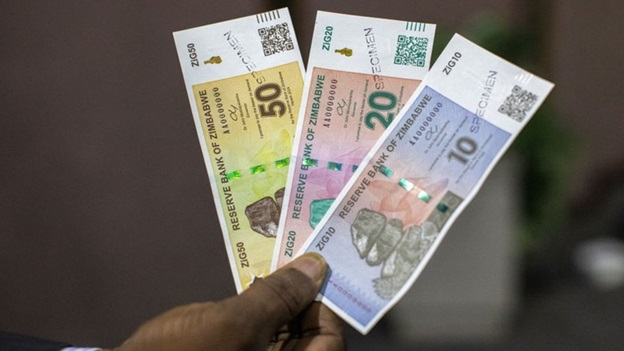In a bid to stabilize its economy and combat soaring inflation, Zimbabwe is taking a bold step by introducing a new currency backed by gold and foreign currencies. The decision, announced by the central bank on Friday, aims to restore public trust in the country’s financial system, which has been plagued by economic turmoil for years.
The Southern African nation had reintroduced its own currency in 2019 after a decade of using the U.S. dollar, but the move failed to gain traction, with more than 80% of transactions still being conducted in foreign currency. The Zimbabwean dollar’s steep decline of over 70% since the beginning of the year has further fueled inflation, which reached an annual rate of over 55% in March, bringing back memories of hyperinflation during Robert Mugabe’s era.
The new currency, named Zimbabwe Gold (ZiG), will circulate alongside foreign currencies, according to central bank governor John Mushayavanhu. The central bank also announced a significant cut in the main interest rate, from 130% to 20%, as part of its efforts to stabilize the economy.
In a monetary policy statement, the Reserve Bank of Zimbabwe outlined that the exchange rate for the new currency would be determined by the closing interbank exchange rate on April 5 and the London PM Fix price of gold on April 4. The currency will be “anchored by a composite basket of foreign currency and precious metals (mainly gold) held as reserves for this purpose by the Reserve Bank,” the statement added.
Banks are required to convert their current Zimbabwean dollar balances into ZiG immediately, while citizens have 21 days to exchange their old notes and coins for the new currency. The central bank also revealed that it holds $100 million in cash and 2.52 tonnes of gold worth $185 million in reserve assets.
These measures mark the culmination of extensive discussions between the central bank and the finance ministry on currency reforms. “If we implement these measures, we expect them to have an impact on inflation,” Mushayavanhu told reporters.
The introduction of a new currency backed by gold and foreign reserves represents a significant step for Zimbabwe as it seeks to stabilize its economy and regain the trust of its citizens and investors.
(Source: WSJ | Bloomberg | Al Jazeera)









